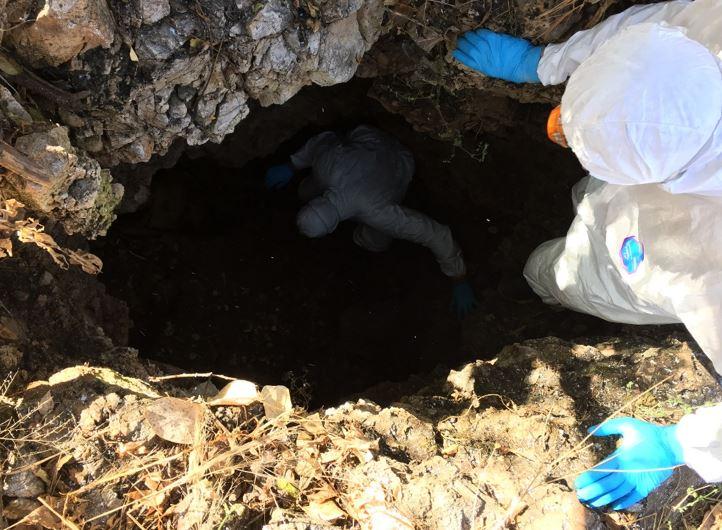- Home
- Worldwide
- CIRAD worldwide
- Projects
- PACMAN project
Diagnostic platform for animal and zoonotic disease control in Zimbabwe - PACMAN

Descending into a cave to take samples of bat urine and faeces © M. Bourgarel, CIRAD PACMAN project
Issues
Zimbabwe has undergone major changes over the last 30 years, linked to the political and economic crisis there. Livestock production sectors suffer from a lack of effective surveillance systems to control animal diseases with a high economic impact (foot and mouth disease, avian influenza, brucellosis, East Coast fever, etc.). The lack of resources, qualified personnel and infrastructure in state-of-the-art biotechnology prevents the country from building an adequate health response and effectively combating these diseases.
Description
The main goal of the PACMAN project is to increase Zimbabwe’s autonomy in the surveillance and control of animal diseases (and to a lesser extent, plant diseases) and zoonotic diseases.
More specifically, PACMAN aims to act in four key areas:
- Building the country’s capacities in biotechnology;
- Training public and private partners in molecular biology and serology techniques, for disease surveillance and control, quality control and research;
- Supporting the implementation of an action, partnership and sustainability plan for the platform;
- Establishing a management and monitoring plan.
The PACMAN project complements the CAZCOM project (Strengthening Zimbabwe's Capacity for Animal and Zoonotic Disease Control) financed by the French Ministry for Europe and Foreign Affairs Solidarity Fund for Innovative Projects (FSPI), and will scale up current efforts. It builds on the findings of the CAZCOM project, continues a certain number of actions already launched, strengthens the structures and multiplies the potential actions for the diagnosis, surveillance and control of zoonotic animal diseases.
Expected results and impacts
Over three years, the PACMAN project will:
- Turn the molecular biology laboratory into a veritable biotechnology platform, capable of implementing state-of-the-art technologies to test for animal and plant diseases, identify microorganisms, etc. This will help to speed up the time it takes (by several months to several days) to implement health responses/actions when epizootics occur;
- Work on a larger number of infectious agents circulating in Zimbabwe, and more broadly in Southern Africa;
- Train more than 50 technical staff (public and private) in animal disease diagnosis techniques, as well as eight students in molecular biology (genetics, virology, bacteriology, etc.), serology and epidemic surveillance techniques;
- Propose expertise and technical services to the public and private sectors for more efficient animal and zoonotic disease surveillance and control systems at the national level, for quality control and other technical services (training, expertise, advice, etc.);
- Participate in the development of surveillance systems appropriate to the country’s economic situation.
At the end of the project, the following impacts are expected:
- Zimbabwe will have an animal and zoonotic disease surveillance and control system that is more efficient and completely autonomous;
- The country’s livestock mortality rates will decrease;
- The agricultural sector in the country will be strengthened;
- The health risks at the livestock-human-wildlife interface will be better known.
























